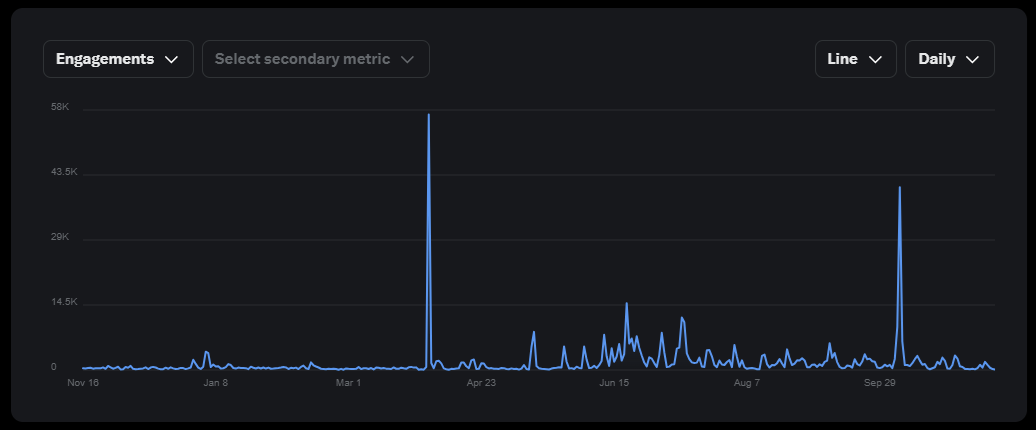Key Takeaways
- Bluesky is decentralized and open source, reducing chances of failure.
- Bluesky’s UI mirrors X, making it an easy switch for users.
- Users on Bluesky may experience higher engagement compared to X.
You may have seen people talk about the “other app” on X (formerly Twitter) in reference to Bluesky, but why is it that this particular competitor to X seems to be gaining the most traction, and not efforts like Threads from major players like Facebook?
It’s Decentralized and Open Source
In a somewhat similar concept to Mastodon, Bluesky is a decentralized platform. As explained by one of the developers in a Bluesky thread that’s the reason Bluesky username includes a domain. Each user’s page is “essentially a website.” Bluesky was made Open Source under the MIT license in 2023, and in principle anyone can make a social app of their own that works with the network.
So why would this make Bluesky more popular? Essentially, it means that there’s a much smaller chance that the whole thing will go down. People can put up their own servers, and the app and protocol are both open, which means anything you make or post today, can be integrated with alternative apps or servers in the future.
The UI Is an Easy Switch for X Users
I honestly completely forget that I’m on Bluesky and not X. Until I see how few followers I have, that is. I don’t know if it’s shameless copying or taking strong inspiration from a winning design, but Bluesky looks, feels, and works pretty much exactly like X does. Everything is where I expect it to be, and you really have to pay attention to minor differences to tell the sites apart.
While this isn’t the most inspired approach, it’s probably a good thing for Bluesky, because it means anyone moving over from X will be right at home, right away.
Bluesky isn’t driven by the same motivations as the current iteration of X. It’s not monetized or ad-driven at present. However, it’s worth reading the explanation of their future business plans on Bluesky’s blog, because obviously the site will need to pay the bills at some point. That it will turn into a hyper-monetized social media site with perverse inventions for toxic content production is somewhat tempered by the aforementioned decentralization and open-source nature of the beast.
That said, as of this writing, Bluesky feels like a much nicer social environment, and it’s understandable why people feel refreshed to be there. However, if it does become as popular as X, that very popularity could make it a less place to be than it is right now.
Better Engagement
Some of this is, of course, subjective, but it does feel that the average person will get more engagement with their posts than those on X. Personally, before Twitter became X, my profile rather rapidly hit 8000+ followers, but as soon as the X premium paid subscriptions rolled out, I saw my engagement drop and plenty of people in my X feed were complaining of the same.
My follower count froze, and posts I made would just seemingly evaporate into the ether. Once I subscribed to X Premium, I quickly added a few hundred more followers, and my engagement levels climbed dramatically. You can clearly see my engagement go through the roof in the latter half of the year after I subscribed.
It seems, based on what people are saying on Bluesky, that the feeling of shouting into the void isn’t quite as bad as being a free user on X, and so that could be another reason we’re seeing users shift over.
Perceived Algorithmic Bias From X
That feeling of seeing things you don’t want to see, and not being seen by people who should be, brings us to perhaps the biggest potential factor: the almighty algorithm.
Apart from feeling like free users are being deboosted in order to get more people to open their wallets, there’s definitely a pervasive sense that the X algorithm isn’t providing the content and interaction that made Twitter so popular in the first place. Again, we’re in the realm of subjectivity here, but I do tend to see more negative posts on X at the top of my feed, not to mention the strange and inappropriate advertising that’s now common.
Bluesky isn’t perfect by any means, and despite community-based moderation tools, and recent features to improve privacy and safety, the platform still has some way to go in those areas. However, it seems that many people aren’t just jumping to Bluesky as a backup in case X actually goes under. Instead, they’re enjoying the experience more than X, and are likely to stay.




